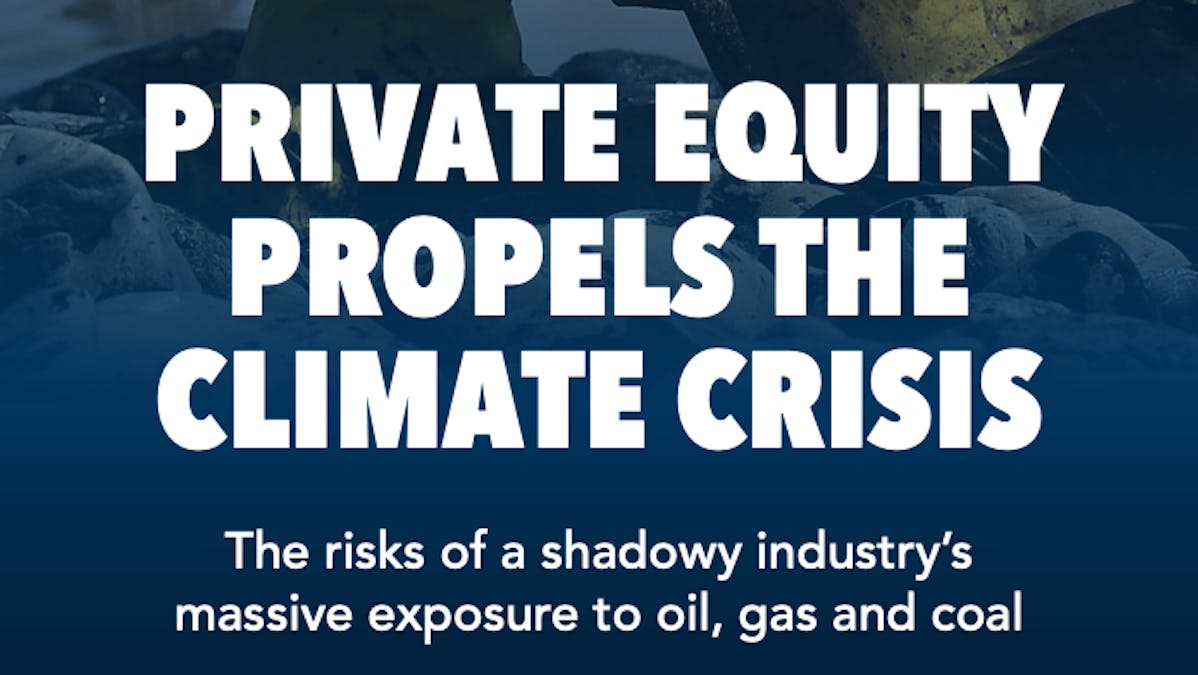Report
Private Equity Propels the Climate Crisis
The private equity industry has pumped hundreds of billions of dollars into fossil fuel companies — offshore drilling in the Gulf of Mexico, fracking operations, pipeline infrastructure and coal power plants — with minimal public scrutiny. Private equity investments in oil and gas are by definition exempt from most public disclosure rules.

The private equity industry has pumped hundreds of billions of dollars into fossil fuel companies — offshore drilling in the Gulf of Mexico, fracking operations, pipeline infrastructure and coal power plants — with minimal public scrutiny. Private equity investments in oil and gas are by definition exempt from most public disclosure rules.
Private equity firms have invested around $1.1 trillion dollars into energy assets since 2010. That is double the market value of Exxon, Chevron, and Royal Dutch Shell combined. Private equity’s energy investments are dominated by fossil fuel holdings that are contributing to the climate crisis through emissions of methane, carbon dioxide and other greenhouse gases (GHG). These investments and operations have significant and long-lasting impacts on the planet and its people, with communities of color shouldering a disproportionate share of the harms of fossil fuels including compromised health4 and damage from extreme weather tied to climate change.
This report is from Private Equity Stakeholder Project (PESP). PESP aims to identify, engage, and connect stakeholders affected by private equity with the goal of engaging investors and empowering communities, working families, and others impacted by private equity investments.